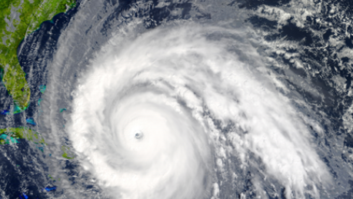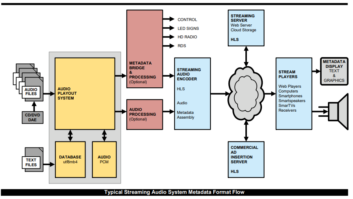LOS ANGELES�I�ve editorialized in the virtual pages of DRU before that there is a danger in letting third parties come between us and our listeners�and that this is an inherent problem with streaming media.
�
So today we can see, in an online article from VPR.net (Vermont Public Radio) that this is exactly what has happened, at least to users that work for the Government in that state.� Sure�it�s only Vermont, and it�s only government employees�but it goes to show how easy it is for an intermediate to completely kill your means of reaching listeners. This is one you can�t do anything about.
�
�A few months ago, lawmakers began noticing something odd about their Internet browsers. Pandora, for instance, once a source of diverse musical offerings, now produced a mostly blank white page with the message �server not found.� Efforts to access entertainment sites such as�Hulu, Spotify, slacker.com and four other sites were similarly futile.
�
�The problem however wasn�t the servers; rather, someone had blocked the sites intentionally.
�
�We constantly monitor our bandwidth, as far as how much bandwidth we have, whether or not we�re seeing delays on bandwidth for our Internet connection,� says Richard Boes, commissioner of the Department of Information and Innovation. �And if we are, then we look to investigate why we�re seeing bandwidth that�s unusual. And we try to take action to solve any of those issues that come up.
�
�Boes is the man who made the call to scrap lawmakers� access to the sites. He says he wasn�t picking on legislators specifically � no one on the state Internet system can access those sites anymore.
�
�Entertainment sites had been consuming more than 7 percent of the state�s data transfer capacity, according to Boes. He says blocking the sites made more sense than spending precious dollars on bandwidth that already costs the state about $1.6 million annually.�
�
For those of you that don�t know how this is done�it�s actually quite easy. The router(s) that connect to the internet for the organization are simply configured to either block a particular IP address, or IP services (like RTP).� Done. �Takes a few minutes.
�
There�s really nothing new about this, either. Years ago (1996 actually) as the CE of KKSF in San Francisco, I received calls from (ironically) Cisco systems.� Seems that the network admins there had blocked our streaming because it was �using up too many network resources.� To be fair, though, it was not easy to pick up KKSF at the Cisco campus.� Most users there would not have been able to listen otherwise.
�
One final thing� the list of blocked sites: Netflix; Pandora; Spotify; Slacker; Radiotune; live365; hulu; jango; iheart; gnutella; kazaa2; fasttrack; edonkey; bittorrent; novadigm.












